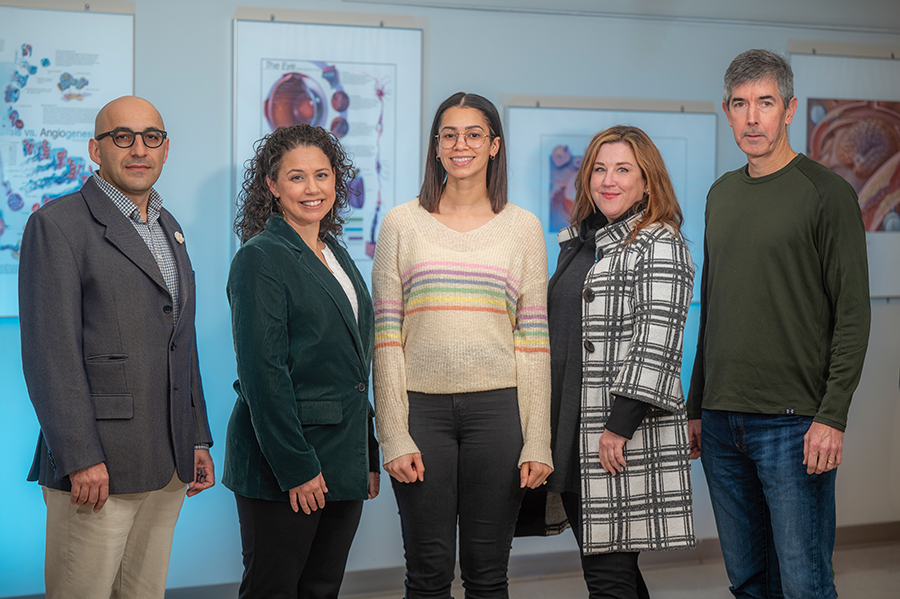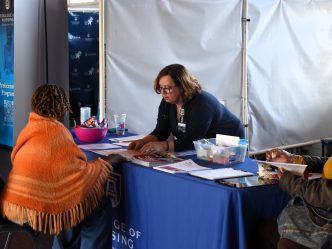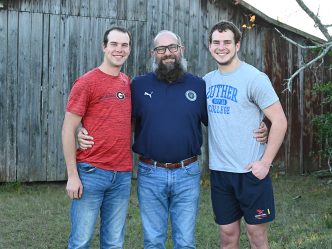Two research teams from Augusta University have received three grants totaling almost $5 million from the Health Resources and Services Administration’s (HRSA) Rural Communities Opioid Response Program (RCORP) to continue projects addressing the opioid epidemic gripping rural areas of the United States.
AU has partnered with Georgia Council for Recovery (GC4R) in all three projects and MedLink, a Federally Qualified Health Center (FQHC), on two of the three projects. AU, MedLink, GC4R and other community-based organizations have been working collaboratively over the last several years addressing morbidity and mortality of substance abuse disorder (SUD) and opioid use disorder (OUD) in high-risk rural communities in Georgia.
“There are three primary areas for addressing the opioid epidemic: treatment, recovery and prevention. The stigma for individuals who suffer from substance use disorder and opioid use disorder is tremendous,” said Vahé Heboyan, PhD, associate professor in the Department of Health Management, Economics, and Policy. “Our partners build stigma reduction strategies into our work in rural areas to provide economic empowerment to those individuals suffering from SUD and OUD. We want to enable the people in these regions and enable community partners to offer real, sustainable assistance.”
The first grant, Medications for Opioid Use and Treatment of Addiction in Northeast Georgia (MOUnTAiN), is an HRSA RCORP grant for medication-assisted treatment (MAT) access for almost $3 million over a three-year period.
Catherine Clary, JD, the director of Rural Health and an assistant professor in the proposed School of Public Health, and Aaron Johnson, PhD, director of AU’s Institute of Public and Preventive Health, serve as principal investigators. J. Paul Seale, PhD, serves as medical director and learning collaborative point of contact, Kit Wootten is the data coordinator and Katherine Hatcher serves as project coordinator. The group’s rural partners include MedLink (FQHC) and Georgia Council for Recovery.
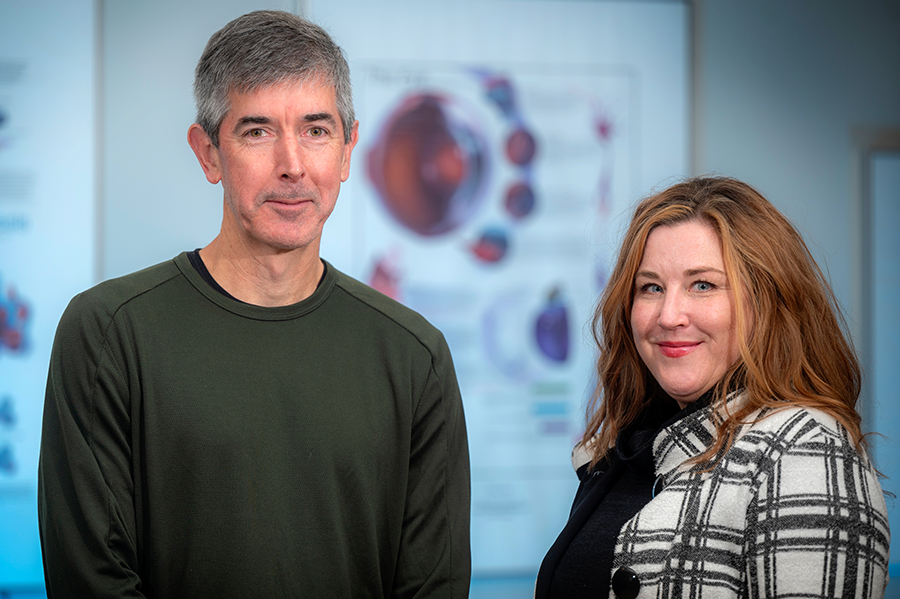
The MOUnTAiN project establishes new MAT access points in Rabun and White counties and increases the capacity for sustainable MAT services in rural areas.
“The primary aim of this project is to create new access points in two of MedLink’s primary care clinics for patients who need medications for opioid use disorder. In addition, we will work with local hospital emergency departments (ED) to improve the referral process for patients who end up in the ED because of their opioid use. We want to make sure that patients who want treatment are able to access available treatment resources,” Johnson said.
Clary, Johnson, Seale, Wootten and Hatcher, along with Georgia Council for Recovery, were also awarded a $300,000, one-year grant to address opioid overdoses.
The Decreasing Overdoses in Northeast Georgia (DOiNG) project provides an immediate response to opioid overdose morbidity in a nine-county region of Georgia: Banks, Elbert, Franklin, Habersham, Hart, Jackson, Rabun, Walton and White counties. During the project year, the group will work with community partners to expand access to naloxone, an opioid overdose reversal medication, and fentanyl test strips in these counties through strategic, targeted distribution. In addition, the project includes training peer recovery support specialists in local service delivery sites (including emergency departments, primary care offices, jails and behavioral health clinics), offering certification and formal training for peer recovery coaches and establishing a new recovery community organization (RCO).
“This grant gives us the opportunity to get naloxone into as many communities as possible to reverse overdoses and establish a RCO to help support people in recovery to prevent overdoses from happening,” Clary said.
The final grant, totaling $1.5 million over three years, will fund the project Access to Services for Pregnant and Postpartum Persons in Northeast Georgia (ASPiriNG), part of the RCORP Neonatal Abstinence Syndrome (NAS) program. It is led by Heboyan and Marlo Vernon, PhD, an associate professor for the Georgia Prevention Institute at AU’s Medical College of Georgia, with assistance from Hatcher.
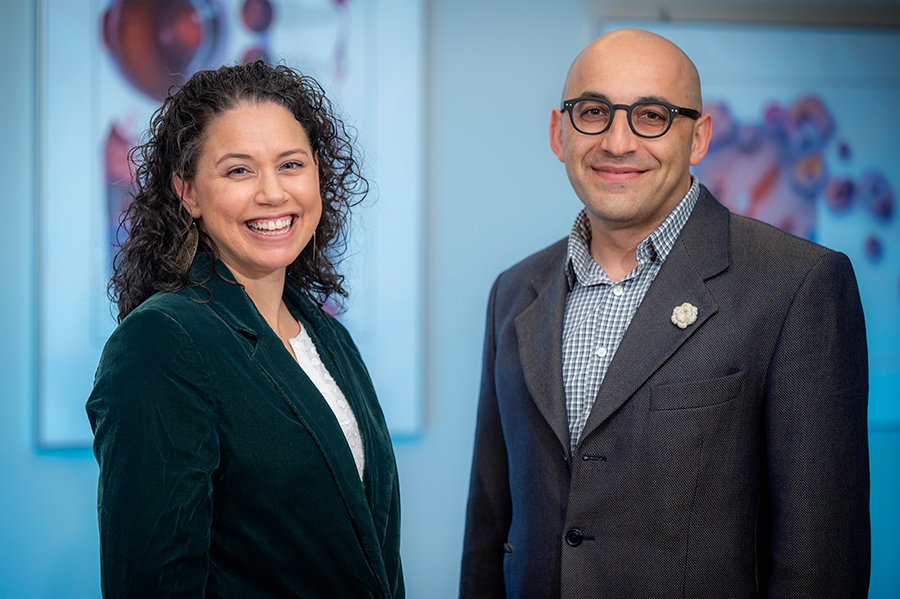
ASPiriNG will provide a comprehensive family-oriented approach to address the ongoing behavioral health care needs and support services for rural pregnant and post-partum women and their families in 12 HRSA-designated rural counties in Northeast Georgia: Banks, Elbert, Franklin, Habersham, Hart, Jackson, Rabun, Stephens, Towns, Union, Walton and White counties.
Part of ASPiriNG is a consortium of partners comprised of Augusta University, MedLink Georgia, GC4R, Northeast Georgia Medical Center Gainesville, Reboot Jackson RCO, SelfDiscovery 24 RCO, Mountain and Piedmont Judicial Circuit Accountability Courts, the Georgia Department of Public Health District 2, Northeast Georgia Medical Center Habersham and Union General Hospital. Through the duration of the project, consortium partners are collaborating to address all three core areas of preconception, prenatal and labor/delivery and postpartum needs of patients in the 12 counties. ASPiriNG represents an opportunity to extend that program in the target region to also include reducing the incidence and impact of NAS.
“It’s important to note this is not only about helping mothers and mothers-to-be; it will help everyone who struggles with substance use, as well as opioid use, in rural areas,” Heboyan said.
“If a mom needs access to treatment for substance use disorder and her county doesn’t have a provider, she can go to the clinic closest to her and be able to access one through telehealth. Developing that network and furthering those collaborations is going to be vital in the coming years and translating this project to a wider area,” Vernon said. “Our consortium’s work to reduce stigma associated with seeking and providing care to women with OUD is multigenerational – impacting mothers, children and their families.”
The current grants follow a string of successful grants aimed at helping expand the availability of and access to treatment services in the counties in Northeast Georgia. The state is in position to receive hundreds of millions of dollars from the opioid settlement fund over the next 18 years. The teams hope that their current work will create the infrastructure, knowledge and expertise needed for long-term success and that any future funding from the opioid settlement will help to sustain and expand these current initiatives and will positively impact the residents in areas that need the most help.
“Most of the work that we do in IPPH is community-based work, and we want to have some role in ensuring that the funds from the opioid settlement fund are not only going toward evidence-based practices, but also are being disseminated to communities that can benefit most, particularly communities in rural Georgia,” Johnson said.
 Augusta University
Augusta University
